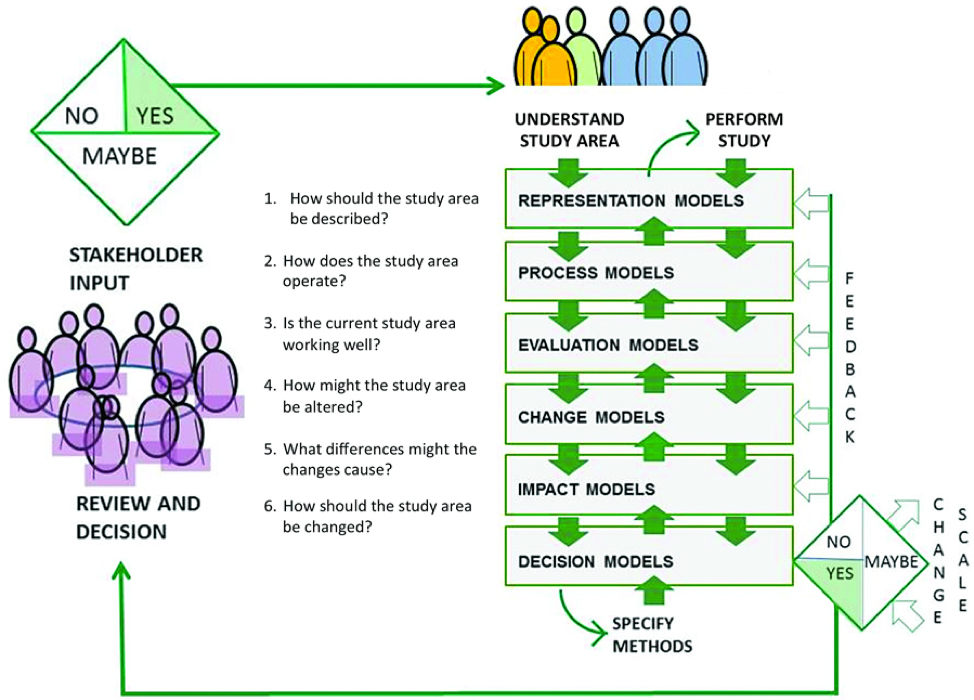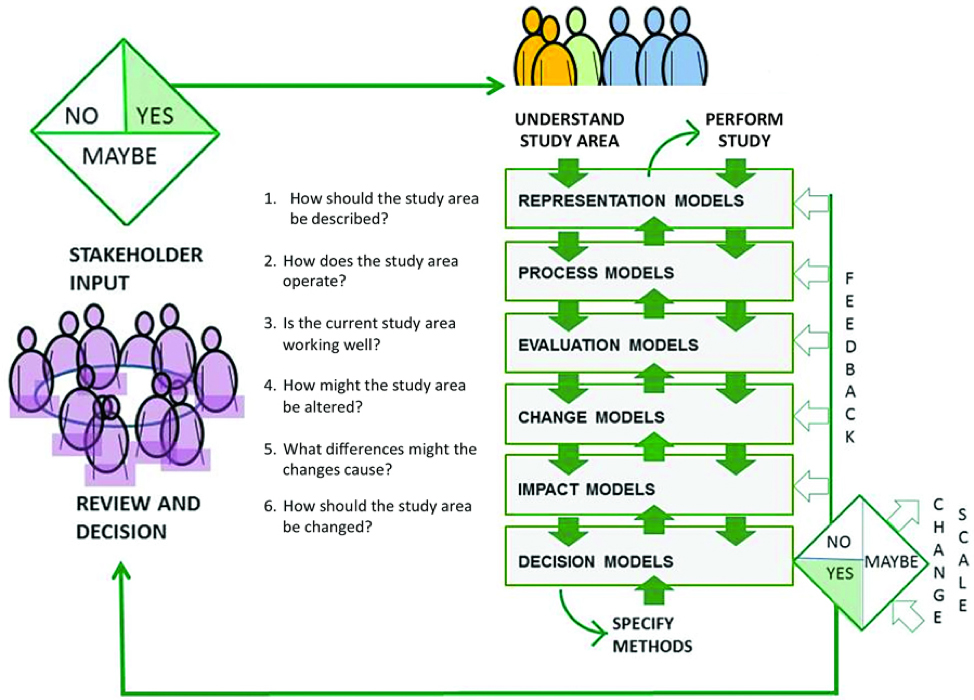Stakeholder Engagement
To fully understand the food, energy and water systems that exist in the Upper Snake River Basin and their impact on the landscape, the involvement of a Stakeholder Advisory Group (SAG) has become a core component of the INFEWs project. First-hand information collected from stakeholders who live and work in the region is vital to understanding how people perceive and connect with these systems, and how these perceptions influence their decision-making regarding the landscape. Continuous involvement of stakeholders in the development of the project will ensure consideration of their input and solutions that benefit them directly. Aside from SAG-focused workshops, other methods of stakeholder engagement include surveys, interviews, site visits and focus groups.
SAG Members
The core Stakeholder Advisory Group is comprised of residents of the Magic Valley with experience in tribal water rights, rural and economic development, dairy farming, commodity crop farming, food processing, water conflict litigation, university extension services, electricity generation and transmission, municipal water and waste management, and canal company and irrigation management.
Scenarios Development
The first-hand information from the Stakeholder Advisory Group, along with our team’s models, allow the INFEWs researchers and stakeholders to more holistically understand the Upper Snake River Basin region. By developing a baseline about how the food, energy and water systems interact throughout the landscape, conversations can begin about the region’s future. Enabling these conversations provides a platform for stakeholders to voice concerns and reassurances about what they believe future growth of the region will look like. To help provide a more concise picture of the region’s future, the ReFEWS team has formally adopted the Geodesign framework (Steinitz 2014) to generate alternative future scenarios that help stakeholders visualize landscape changes throughout time, discuss outcomes, and explore possible solutions for a region projected to experience many climate, economic and social uncertainties.








